
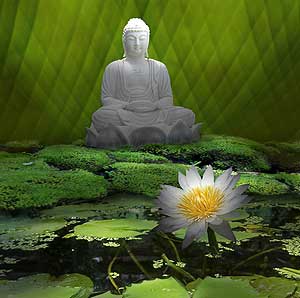




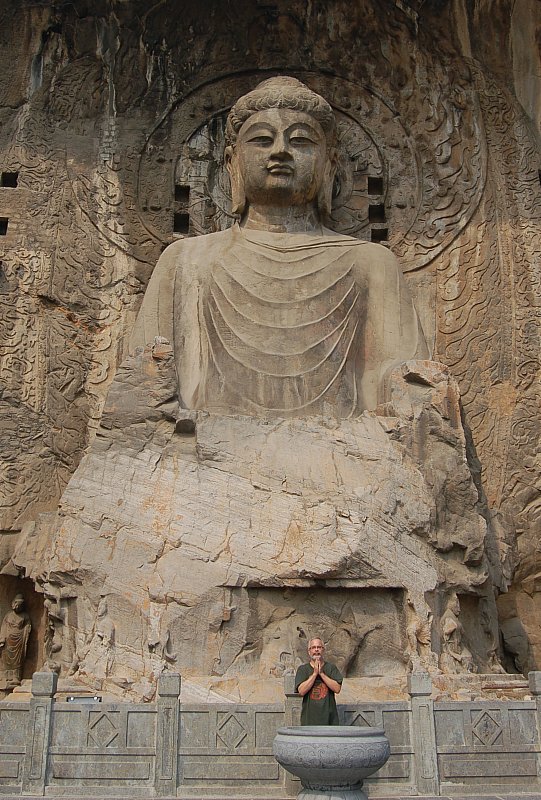
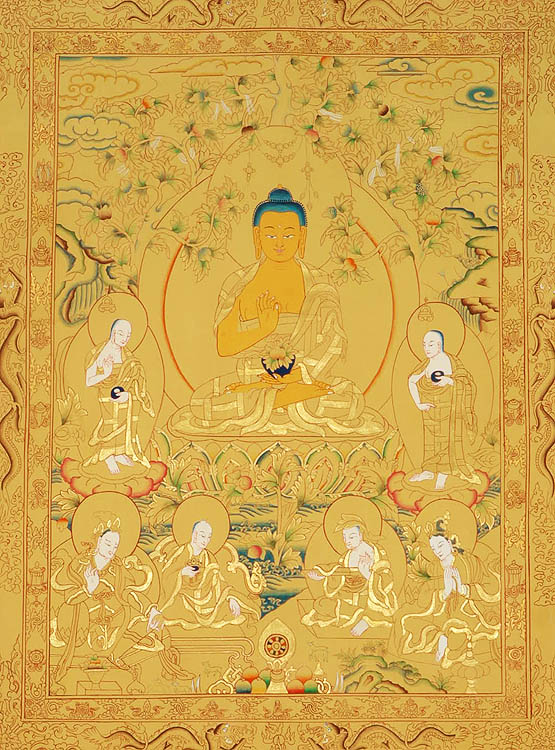









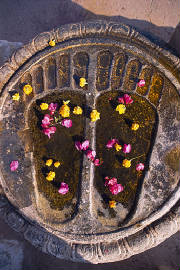

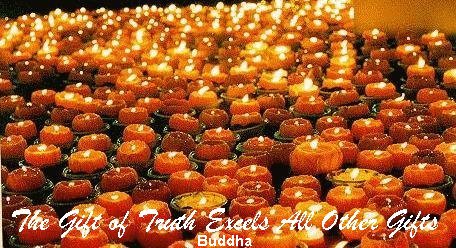



![]()

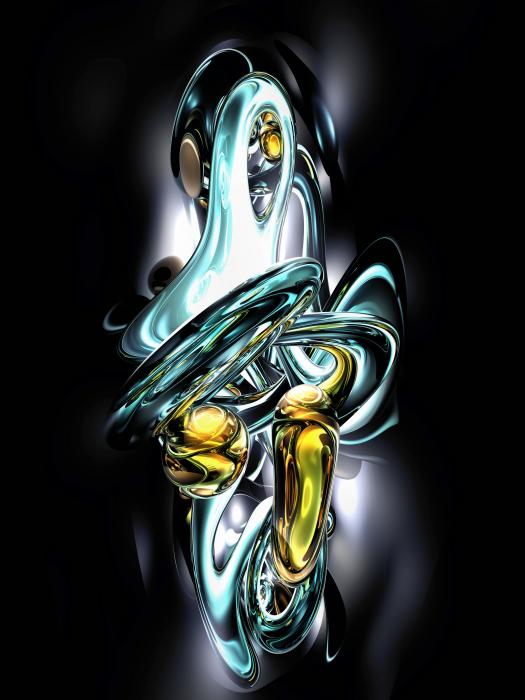

























447 LESSON 25 11 2011 Harita 2
FREE ONLINE eNālandā Research and Practice UNIVERSITY &
BUDDHIST GOOD NEWS LETTER Through
http://sarvajan.ambedkar.org
FREE
ONLINE CONCENTRATION PRACTICE INSTITUTE FOR STUDENTS(FOCPIS)-
The Narratives for the Levels of Departmental Curri
10 12 2011 462 LESSON Samiddhi Sutta- One should do no evil by one’s speech, Not
anywhere, by body or in thought, Leave desires, be mindful and aware, Thus
avoiding pain that’s purposeless -FREE ONLINE eNālandā Research and Practice
UNIVERSITY & BUDDHIST GOOD NEWS LETTER Through http://sarvajan.ambedkar.org
FREE ONLINE CONCENTRATION PRACTICE INSTITUTE FOR
STUDENTS(FOCPIS)-
The Narratives for the Levels of
Departmental Curricula- Course Descriptions-
THE BUDDHIST ON LINE GOOD NEWS LETTER
COURSE PROGRAM
LESSON 462
Practice a Sutta a Day Keeps Dukkha
Away
Please SMS this message to your friends to acquire the MASTER KEY









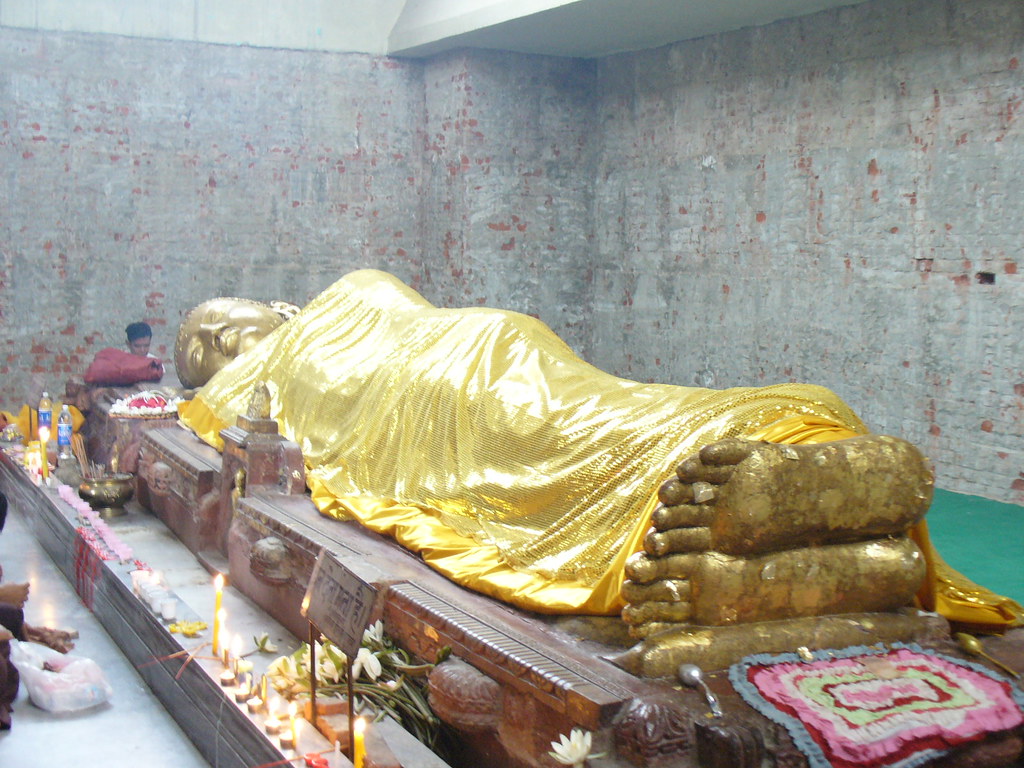


 |
| Phra Buddha Kanchanaphisek (Golden Jubilee Buddha Image) For celebration of the 50th anniversary on the throne of His Majesty the King (Please click to see the process of gold leaf coverage) |

“
King of the Kings White-Jade Buddha Image ”


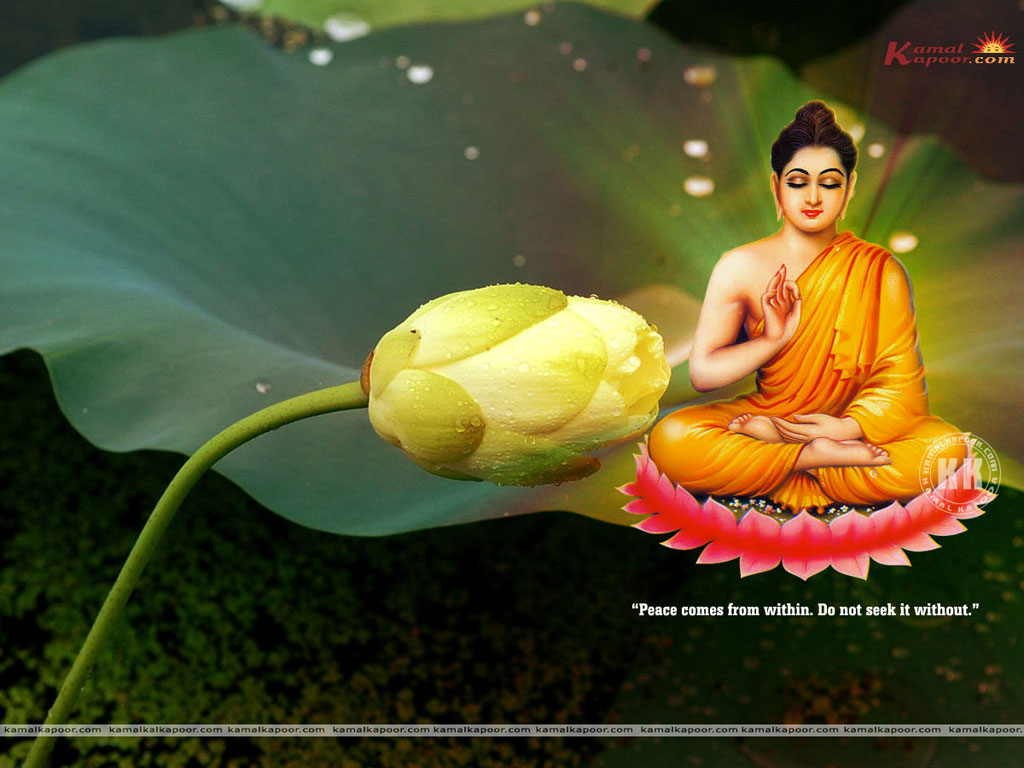
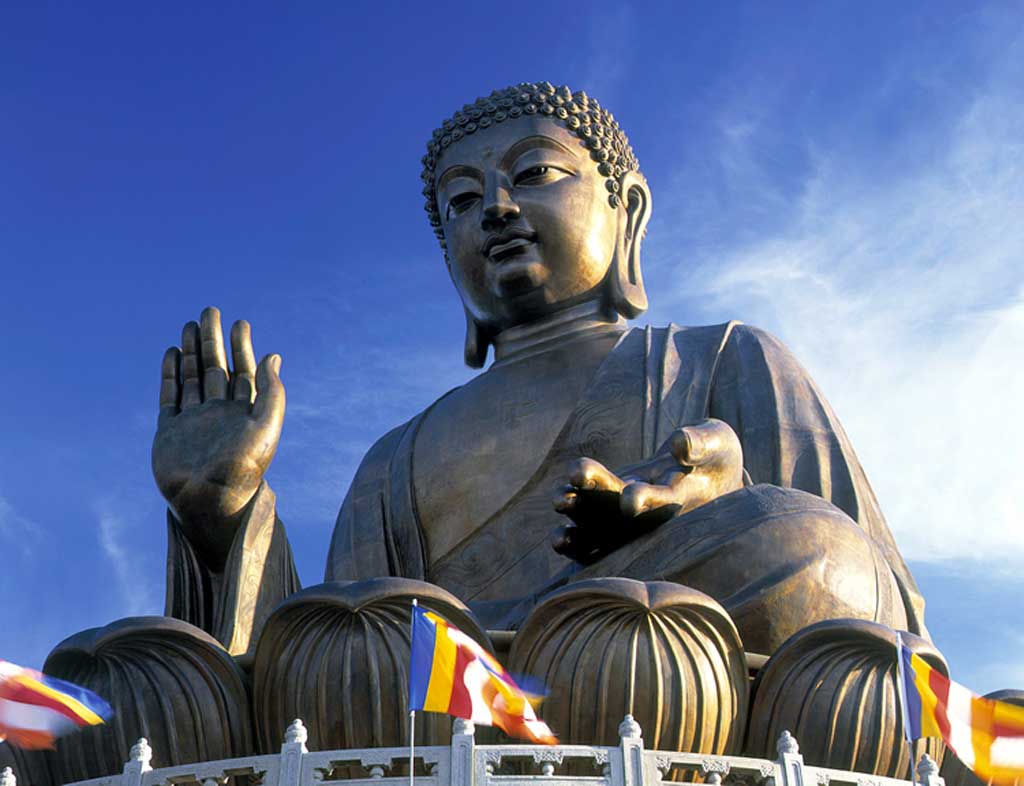





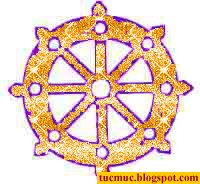


PTS: S i 8
CDB i 97
Samiddhi Sutta:
Samiddhi
translated from the
Pali by
Maurice O’Connell
Walshe
Alternate translation: Thanissaro
The Pali title of this
sutta is based on the PTS (Feer) edition.
Thus have I heard. At one time the Blessed One was staying at
Raajagaha in the Tapodaa Park. Now the Venerable Samiddhi, as dawn approached,
arose and went to the Hot Springs[1]
to bathe. Having bathed, he came out of the Hot Springs and stood, clad in a
single garment, drying his limbs. Then a certain she-deva,[2]
as the night was passing away, lighting up the entire Hot Springs lake with her
effulgent beauty, approached the Venerable Samiddhi and, hovering in the air,
addressed him thus in verse:
Having had no sport,
monk seeking alms,[3]
Having none today, just seeking alms, Why not get your fill, monk, then seek
alms, Lest your fleeting hour should slip away?[4]
[Samiddhi replied:]
“Hour” you
say, but I know not the hour. Hidden is my hour, and not revealed: Therefore,
self-restrained, I just seek alms, Lest my fleeting hour should slip away.[5]
Then the she-deva came down to earth and said to Samiddhi:
“You are young, bhikkhu, to have left the world, black-haired, with the
bloom of youth. In your youthful prime you do not enjoy the pleasures of the
senses. Get your fill, bhikkhu, of human pleasures. Don’t reject the present
moment to pursue what time will bring.”[6]
“I, friend, do not reject the present moment to pursue what
time will bring. I reject what time will bring to pursue the present moment.
Time’s pleasures, friend, as the Blessed One has said, are fraught with pain,
fraught with tribulation, leading to greater danger. This Dhamma is
here-present, out of time, inviting inspection, leading onward, to be realized
by the wise each for himself.”[7]
“In what way, bhikkhu, has the Blessed One said that time’s
pleasures are fraught with pain, fraught with tribulation and leading to
greater danger? In what way is this Dhamma here-present, out of time, inviting
inspection, leading onward, to be realized by the wise each for himself?”
“I, friend, am fresh, having not long left the world, a
newcomer. I am not able to explain in detail this Dhamma and discipline. But
the Blessed One, the Arahant, the Fully Self-Enlightened One is staying at
Raajagaha in the Tapodaa Park. Go to the Blessed One and ask him about the
matter. Then bear in the mind the explanation he gives to you.”
“It is not easy for us, bhikkhu, to approach the Blessed One.
He is surrounded by other devas of great power. If you, bhikkhu, will approach
the Blessed One and ask him about the matter, then perhaps we can come to hear
the teaching.”
“Very well, friend,” the Venerable Samiddhi replied to
her, and he went to the Blessed One, made his obeisance and sat down to one
side.
[He then told the whole story in identical words to the
Buddha.]
“If, Lord, that deva was telling the truth, she is right
here, not far away.”
When he had said this, the deva said to the Venerable Samiddhi:
“Ask him, bhikkhu, ask him! I’ve managed to get here!”
Then the Blessed One addressed the deva in verse:
Those who go by names,
who go by concepts, Making their abode in names and concepts, Failing to
discern the naming-process, These are subject to the reign of death, He who has
discerned the naming-process Does not suppose that one who names exists. No
such case exists for him in truth, Whereby one could say: “He’s this or
that”[8]
If you know what this means,[9]
tell me, fairy.[10]
“Lord, I do not fully grasp the meaning of what Your
Blessedness has expressed in brief. It would be well for me, Lord, if your
Blessedness would explain in full what has been expressed in brief, that I may
know its meaning.”
[The Blessed One said:]
“Equal I am, or
better, of less degree”: All such idle fancies lead to strife, Who’s
unmoved by all these three conceits Such vain distinctions leaves unmade.[11]
If you know what this means, tell me, fairy.
“Lord, neither do I full grasp the meaning of this which
Your Blessedness has expressed in brief. It would be well for me, Lord, if Your
Blessedness would explain in full what has been explained in brief, that I may
know its meaning.”
[The Blessed One said:]
Who labels not, and
holds no vain conceits, Has cut off craving here for name-and-form[12]
Free from bonds and pain, with no desires, Vainly seeking, none will find that
man, Neither gods nor men, on earth, above, Not in heaven, nor in any sphere.[13]
If you know what this means, tell me, fairy. If you know what this means, tell
me, fairy.
“Lord, the meaning of what Your Blessedness has expressed
in brief I understand in full like this:
One should do no evil
by one’s speech, Not anywhere, by body or in thought, Leave desires, be mindful
and aware, Thus avoiding pain that’s purposeless.”[14]
1.
This is the meaning of Tapodaa. Cf. place-names such as Teplaa,
Teplice in Czecho-Slovakia, all associated with hot springs.
2.
Strictly speaking, “she-deva” is ungrammatical, since
deva (Wheel 318, n.1) is masculine (the fem. devii usually means
“queen.” In all of these little stories the Pali text has the
abstract noun devataa which, like our “deity,” covers both
sexes. It is clear from the context as well as the pronouns used later in some
(but not all) manuscripts that this one is female. In its anglicized form,
“deva” can perhaps legitimately be taken to denote either sex.
3.
In Pali there is an untranslatable play here on the two meanings
of bhutvaa, “having eaten,” and “having enjoyed
oneself.” Such puns and similar ambiguities are not infrequent in the
texts, and are often difficult to bring out in translation.
4.
As will be seen, the devas, (none of whom, of course, are
enlightened) are at various stages of spiritual development. This one is
clearly not very advanced!
5.
The hour Samiddhi means is that of his death.
6.
Kaalika:
“concerned with time” (”time-ish”: Mrs. Rhys Davids). The
deva probably means “there is time for all that as you are young,”
but the word is no doubt introduced together with sandi.t.thika (here
rendered “the present moment”) to enable Samiddhi to quote the
standard formula on the Dhamma (n. 7).
7.
Sandi.t.thiko akaaliko ehipassiko opanayiko paccata.m veditabbo
viññuuhi. Sandi.t.thiko lit
means “visible” but has the sense of “present, at the present
time, in this life”; akaaliko “timeless” can mean both
“immediate” and “not involving time, outside of time,” ehi-passiko
= “come-and-see-ish”; opanayiko (from upa-neti
“leads towards”) means “leading to the goal.” The Dhamma as
Truth can only be realized individually by insight.
8.
Mrs Rhys Davids says “The Buddha rebukes the fairy [see
below, n. 10] for her
suggestive ambiguities.” But the real ambiguity lies deeper than such
frivolity, being concerned with the difference between conventional truth (sammuti-sacca)
which takes beings, etc., as being real, and the ultimate truth (paramattha-sacca)
which does not (see also SN 1.25, The
Arahant).
9.
Sace vijaanaasi: Mrs. Rhys Davids renders “If thou knowest [such a
man].” But the clear meaning is “if you can grasp this distinction,”
which is how the she-deva takes it, admitting that she cannot.
10.
“Fairy”: yakkhii, a female yakkha. These
(Sanskrit yak.sa) are somewhat ambiguous creatures, sometimes helpful,
sometimes harmful to man, though later they are thought of as demons (see PED).
There is doubtless an implied rebuke in the Buddha’s choice of this form of
address. “Fairy” (also an ambivalent expression) is probably the best
word here (as used by Mrs. Rhys Davids).
11.
The three forms of conceit (maana) are to think one is
equal to, less than, or better than another. All three are due to the
ego-illusion (see SN 22.49).
12.
Naama-ruupa.
13.
He has passed into Nibbaana, and therefore cannot be found
anywhere.
14.
She has, according to SA, rightly discerned the Middle Way
between self-indulgence and self-torture. In fact, it looks as if her
understanding is still somewhat limited: she has, however, grasped the fact
that she was indulging in wrong speech at the ethical, if not the ontological
level referred to by the Buddha, and she has also understood that one should
“leave desires.” If she has been cured of her frivolity, that at
least is a good start!












The Only Hope of the
Nation is Elephant of BSP!
of BSP!
People are just fed up
with Congress, other regional parties and BJP!
To capture the Master
Key!
It is do or die!







watch latest Birthday video:http://www.in.com/videos/watchvideo-mayawati-birthday1mp4-8025851.html





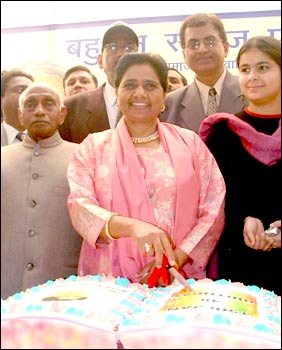
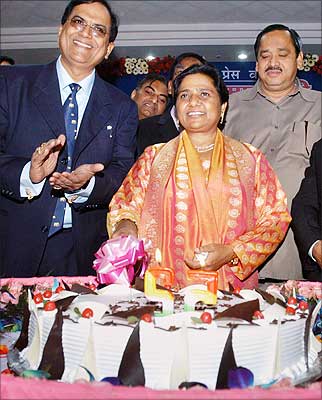












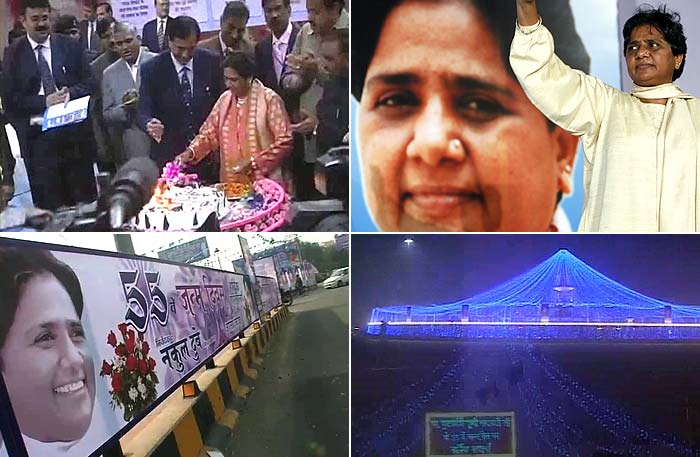

















|
POLITICS is SACRED with Highly
performing best and meritorious governance of Ms Mayawati
The Lok Sabha
election is on the way. Predictions on the hot topic - who will be the next
Prime Minister of PraBuddha Bharath?
Citing the
report, many started speculating that Mayawati also can be the next Prime
Minister as the report mentioned about a Untouchable (Scheduled Caste)
Here it can be recalled that the BSP leader and the Chief
Minister of Uttar Pradesh always has been noticed of using her Sarvajan Hithay
Sarvajan Sukhay i.e., the welfare and happiness of the entire people of the
Country card. The report will enhance Maywati’s dream who is looking forward to
the assembly election, 2012.
None can
stop Uttar Pradesh chief minister Mayawati from setting a record.
By the time the Uttar Pradesh Assembly elections are held
next year, the BSP boss will have scored over G.B. Pant, Kamalapati Tripathi,
Sampurnanand, Sucheta Kriplani, N.D. Tiwari, Mulayam Singh Yadav, Kalyan Singh and all the other chief ministers the
state has had since Independence.
She will be the first Uttar Pradesh chief minister to
complete five years in office ‘ that is, a full, uninterrupted term.
The country’s most populous and politically vital state
has till now not had a chief minister who served a full term.
Even Pant, a legendary figure and freedom fighter who in
1937 became chief minister of the then United Province, could not complete a
full term.
Pant, whose political skills were highly regarded by both
Mahatma Gandhi and Jawaharlal Nehru, served as chief minister four times ‘
twice before Independence and twice after.
But his stints were separated by Assembly polls and then
by his appointment as the country’s home minister in December 1954.
Sampurnanand, a teacher and a towering figure during the
freedom struggle, succeeded Pant. He served from December 1954 to December
1960, his tenure broken by the April 1957 Assembly polls.
Sampurnanand’s successor Chandra Bhan Gupta was regarded
as a politician among politicians. His uneasy ties with Indira Gandhi and
one-upmanship with Kamalapati Tripathi and Hemvati Nandan Bahuguna resulted in
political instability and the emergence of the first non-Congress government in
the heartland when Charan Singh became chief minister in 1967. Between 1962 and 1967, several
chief ministers came and went.
Gupta had several stints between December 1960 and April
1967. Kriplani, who came from a Bengali family, took over in October 1963.
Gupta was back on March 14, 1967, but couldn’t survive beyond 18 days.
Throughout
the 1970s, governments led by Charan Singh, Tribhuvan Narain Singh, H.N.
Bahuguna, N.D. Tiwari, Ram Naresh Yadav and Banarsi Das kept collapsing, paving
the way for four spells of President’s rule.
In 1980,
Sanjay Gandhi picked V.P. Singh, who moved to the Centre in 1982. Vir Bahadur
Singh ruled between September 1985 and June 1988. The state was again handed
over to Tiwari, who took up the job for the third and last time as a Congress
chief minister of undivided Uttar Pradesh.
Mulayam Singh Yadav worked out a deal with the Congress
to become chief minister in December 1989, but the June 1991 polls saw a
resurgent BJP win the elections. But December 6, 1992, marked Kalyan Singh’s
dismissal.
December 1993 saw the short-lived coming together of
Mulayam and Mayawati under a Kanshi Ram-supervised power-share formula.
The BJP’s rule between 1997 and 2002 saw Kalyan, Ram Prakash Gupta and
Rajnath Singh occupy the chair. Mulayam’s tenure between August 2003 and May
2007 provided some degree of stability.
In May 2007, Mayawati defied her critics by getting a
decisive mandate. Her paradigm-bending alchemy of Brahmin and SC/ST votes now
faces no challenge.
By victory, Mayawati will still take a trophy.
Video on
BSP will return to power in UP: Mayawati says
Opposition is scared of BSP. Youraj came running to UP leaving the Parliament
in middle of the session.
Show of strength at Ramabhai Ambedkar Ground
|
Mayawati’s proposal to divide Uttar Pradesh into four States goes
Uttar
Laying down foundation stones for 160 projects worth Rs 1400 crore on Mayawati announced electricity project of 375.22 crore while gave 276 Speaking on the occasion, she thanked people for supporting her BSP Mayawati said that Baba Saheb’s hard struggle for the SC/ST communities
“We have reached at this position after hard struggle and will not leave She urged people to vote BSP in the forthcoming assembly election to fulfill the dreams of Baba Saheb. Attacking opposition political parties, Mayawti said that previous governments utterly failed to uplift the SC/STs. “Don’t get hoodwink by the false promise of such opportunistic political
Mayawati looks to repeat ‘07 formula
Uttar Pradesh chief minister Mayawati will hold a grand rally of
The BSP has already held two such rallies: a Brahmin rally, and a SC/ST-OBCs rally. The
Bhaichara Samitis — vehicles of SC/ST outreach to other castes — are
Mayawati’s strategy is harping on graft charges against the central government and BJP governments in BSP sources insist the construction of statues in the memory of
SC/STs must conquer Delhi, says Maya LUCKNOW: UP chief minister and BSP chief Mayawati on Tuesday launched 160 development projects worth
Mayawati said “Babasaheb The projects announced by Mayawati included several related to drinking
Mayawati made announcements after paying tribute to Ambedkar. While
Mayawati said Opposition parties were constantly attacking her party and “With only some time left for the assembly polls, Opposition have lost The chief minister said that only BSP is taking forward the work started
  Thus spoke AmbedkarLast Message to the people“Whatever
|
 |
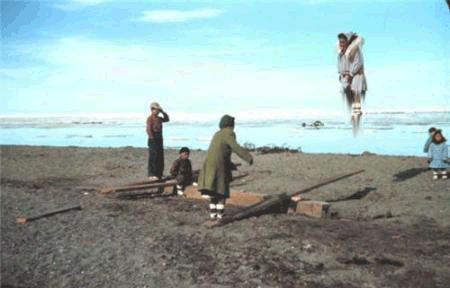
![]()


 |
 |
 |
 |
|---|







cula- Course
Descriptions-
Astronomy
THE
BUDDHIST ON LINE
GOOD NEWS LETTER
COURSE PROGRAM
LESSON 447
Practice
a Sutta a Day Keeps Dukkha Away
Harita
(2)
translated
from the Pali by
Thanissaro
Bhikkhu
Whoever
wants to do later what he should have done first, falls away from the easeful
state & later burns with remorse. One should speak as one would act, &
not as one wouldn’t. When one speaks without acting, the wise, they can tell.
How very easeful: Unbinding, as taught by the Rightly Self-awakened One —
sorrowless, dustless, secure, where stress & suffering cease.
Astrology and Astronomy
‘I believe in astrology but not astrologers.’
From the very beginning of time man has been fascinated by the stars
and he has always tried to find some links between them and his own destiny.
His observation of the stars and their movements gave rise to two very
important areas of study, namely, Astronomy and Astrology. Astronomy can be
considered a pure science which is concerned with the measurements of
distances, the evolution and destruction of stars, their movements, and so on.
Of course all these calculations are always made in relation to planet earth
and how these interplanetary movements affect mankind on a physical level.
Modern astronomy seeks to find answers to the still unanswered questions
regarding the origin of man and the final, possible end of his existence as a
member of the human race. It is a fascinating area of study and our new
knowledge of the universe and the galaxies has put much pressure on many
religions to evaluate their age-old postulations regarding the creator and the
creation of life.
Buddhism does not face any dilemma, simply because the Buddha did
not encourage His followers to speculate on things beyond their comprehension.
However, He has made many allusions which in the light of our new knowledge
gained through science, shows us that the Buddha was very much aware of the
true nature of the Universe, that it was never created in one glorious moment,
that the earth is merely a tiny, even unimportant speck in all of space, that
there is constant creation and destruction, and that everything is in constant
motion.
Astrology, however, is a completely different area of study
altogether. Ever since early man began to think, he was deeply concerned about
his relationship with the universe. When human societies became involved in
agricultural activities man progressed from hunting as a livelihood and began
to notice a link between the movement of the sun through the years and his own
activities of planting, harvesting, and similar projects. As he became more
sophisticated he was able to predict the movement of the sun and he invented
time measurement, dividing into years, months, days, hours, minutes and
seconds.
He associated this knowledge with his existence whereby he felt that
there was a relationship between his own life cycle and the movement of the
planets. That gave rise to the Zodiac–A study of these movements in relation
to a human being’s personal life is called a horoscope.
The study of astrology involves a great understanding of human
nature, an ability to assess planetary movements precisely, together with an
insight into the seemingly unexplainable phenomena in the universe. There have
been many brilliant astrologers in the past and some exist even today.
Unfortunately there are an even larger number of charlatans who give astrology
a bad name. They hood-wink people by predicting seemingly true events about
their future. They make large sums of money by exploiting the ignorance and
fear of the gullible. As a result, for a long time scientists scoffed at
astrology and did not depend on it. However their hostile attitude is not
really justifiable. The main purpose of reading a horoscope should be to give
one an insight into one’s own character, in the same way that an X-ray
photograph can show the physical make-up of a man.
Statistics have shown that the influence of the sun in the signs of
the Zodiac accounts for the birth of unusual people during certain months.
Certain crimes have been found to correspond with zodiac signs in which the sun
is moving during certain months of the year.
Thus an understanding of this relationship will help a man to plot
his life more meaningfully in harmony with his innate tendencies, so that there
is less friction as he goes through life.
A new-born baby is like a seed. It contains within itself all the
ingredients which will make it a similar, yet completely different individual
from all its fellow human beings. How its potential is developed depends, like
the seed, on the kind of nurture it receives. The nature of a man is born
within him, but his own free will determines whether he will make really good
use of his talents and abilities. Whether he will overcome his potential for
vice or weakness depends on how he is trained in his youth. If we recognize our
nature–our tendency towards laziness, irritability, worries, frustrations,
wickedness, cunnings, jealousy–we can take positive steps to overcome them.
The first step in solving problems is to recognize them for what they are.
Astrological interpretations indicate our inclinations and
tendencies. Once pointed out, we must take the necessary steps to chart our
lives in a manner that will make us useful citizens of the world. Even a person
with criminal tendencies can become a saint, if he recognizes his nature and
takes steps to lead a good life.
A horoscope is a chart drawn to show the karmic force a man carries,
calculated from the time of his birth. The force determines the time of birth
and knowing this time, a skillful astrologer can accurately chart a man’s
destiny within a given life-span.
Everybody knows that the earth takes approximately one year to move
around the sun. This movement, viewed from the earth, places the sun in various
zodiacal areas during the year. A person is born (not accidentally, but as a
result of karmic influence)when the sun is on transit in one of the twelve
Zodiacal signs.
Through the horoscope you can determined certain times in your life
when you have to slow down, or push yourself to great levels of creativity, or
when you have to watch your activities and health.
Buddhist Attitude Towards
Astrology
The question most people ask is whether Buddhism accepts or rejects
astrology. Strictly speaking, the Buddha did not make any direct pronouncement
on this subject because as in many other cases, He stated that discussion on
matters such as these do not pertain to spiritual development. Buddhism, unlike
some other religions, does not condemn astrology and people are free to used
the knowledge they can get from it to make their lives more meaningful.
However, if we study the Buddha’s teaching carefully, we will come to accept
that a proper and intelligent understanding of astrology can be a useful tool.
There is a direct link between the life of an individual human being and the
vast workings of the cosmos. Modern science is in accordance with the teachings
of Buddhism. We know for example that there is a close link between the
movement of the moon and our own behavior. This is seen especially among
mentally disturbed and abnormally violent people. It is also true that certain
sicknesses like asthma and bronchitis are aggravated when the moon waxes. There
is, therefore, sufficient basis for us to believe that other planets can also
influence our lives.
Buddhism accepts that there is an immense cosmic energy which
pulsates through every living things, including plants. This energy interacts
with the karmic energy which an individual generates and determines the course
that a life will take. The birth of an individual is not the first creation of
a life but the continuation of one that had always existed and will continue to
exist so long as the karmic energy is not quelled through final liberation in
the unconditioned state. Now, for a life to manifest itself in a new existence,
certain factors, namely seasons, germinal order and nature must be fulfilled.
These are supported by mental energy and karmic energy and all these elements
are in constant interaction and interdependent with each other resulting in
constant changes to a human being’s life.
According astrologers, the time at which a person is born is
predetermined by the cosmic energy and the karmic energy. Hence, it can be
concluded that life is not merely accidental: it is the result of the
interaction between an individual’s karma and the universal energy force. The
course of a human life is predetermined, caused partly by a being’s own actions
in the past and the energies that activate the cosmos. Once started, a life is
controlled by the interaction between these two forces even to the moment at
which a birth takes place. A skillful astrologer then, as one who understands
cosmic as well as karmic influence, can chart the course of one’s life, based
on the moment of the person’s birth.
While we are in one sense at the mercy of these forces, the Buddha
has pointed out a way through which we can escape its influence. All karmic
energies are stored in the subconscious mind formally described as mental
purifies and impurities. Since karmic forces influence one’s destiny, a person
can develop his mind and negate certain evil influences caused by previous bad
kamma. A person can also ‘purify’ his mind and rid himself of all karmic
energies and thus prevent rebirth. When there is no rebirth, there is no
potential life and there will consequently be no ‘future’ existence which can
be predicated or charted. At such a stage of spiritual and mental development ,
one will have transcended the need to know about his life because most
imperfections and unsatisfactoriness would have been removed. A highly
developed human being will have no need for a horoscope.
Since the beginning of the 20th century, psychologists
and psychiatrists have come to recognize that there is much more to the human
mind than the hard core materialists have been ready to accept. There is more
to the world than can be seen and touched. The famous Swiss psychologist, Carl
Jung, used to cast the horoscopes of his patients. On one occasion when he made
an astrological analysis of about 500 marriages, he discovered that the
findings of Ptolemy, on which modern Western astrology is based, were still
valid, that favorable aspects between the sun and the moon of the different
partners did produce happy marriage.
The well-known French psychologist, Michel Gauguelin, who originally
held a negative view of astrology, made a survey of about 20,000 horoscopical
analyses and found to his surprise that the characteristics of the persons
studied coincided with characterization produced by modern psychological
methods.
The planting of certain flowers, trees and vegetables at different
times of a year will produce differences in strength or appearance of the
plants. So there is no reason to doubt that people born in certain times of the
year will have different characteristics from people born at other times. By
knowing his weaknesses, failures and short-comings, a man can do his best to
overcome them and make himself a better and more useful person to society. It
will also help him a great deal to get rid of unhappiness and disappointments.
(Going away from the country where a person is born for example, can sometimes
help one avoid the influence of the stars.).
Shakespeare says: ‘The fault is not in our stars but in
ourselves”. A well known astrologer has said: ‘The stars impel; they do
not compel’. St. Thomas Aquinas says: ‘The planets influence the more elemental
part of man than passions’, but through his intellect man can arrange his life
in harmony with the planets, and also cultivate his inherent talents and
manipulate them for his betterment.
Astrology cannot automatically solve all your problems. You must do
that yourself. Just like a doctor who can diagnose the nature of diseases, an
astrologer can only show certain aspects of your life and character. After that
it is left to you to adjust your way of life. Of course, the task will be made
easier, knowing what it is you are up against. Some people are too dependent on
astrology. They run to the astrologer everytime something happens or if they
have a dream. Remember, even today astrology is very much an imperfect science
and even the best astrologers can make serious mistakes. Use astrology
intelligently, just as you would use any tool which would make your life more
comfortable and more enjoyable. Above all, beware of fake astrologer who are
out to cheat you by telling you not the truth, but what you want to hear.
Do not expect good luck to come to you or be handed to you easily
without any effort on your part. If you want to reap the harvest, you must sow
the seed and it must be the right seed. Remember, ‘Opportunity knocks at the
door, but never break the lock to gain entrance.’
-ooOoo-
VOICE of SARVJAN

Comments on:
Nehru Dynasty down to Youraj is stealing the money meant for
poor for the favour of rich.Peoples verdict in the coming electionswill come to
know who parked how much after the results as they are fed up with the Central
Government rulers and the media which is in favour of this ruling caste.
Real fact is that the Country, like the United States which
felt Obama was a better President, the people of this country, just like Uttar
Pradesh feel that Ms Mayawati would make a better Prime Minister.
Pandit Nehru down to Youraj, the bankers and the media love
to hate not only Mayawati but the entire poor and the untouchables. That is
traditional dominating attitude with full of defilement of their minds with
full of anger, jealousy and hatred. But the common people wants the highly
performing best and mertorious governance of UP CM and the future PM of
PraBuddha Bharath Ms. Mayawati to rule this country.
To say that Mayawati rakes up or uses caste politics is
missing the point. It is because she has highlighted the plight of SC/STs, that
they are finally today able to raise their heads high and not be humiliated and
brutalized by upper castes as they always have been in UP. The growth
rate of the state is the same as the national average for the last 5 years.
Contrary to most media commentary, UP hasn’t done too poorly with Mayawati.- Sinchan70
Ms Mayawati has awakened the entire people (Sarvjan
Samaj)with awareness by her highly performing best and meritorious governance
of Uttar Pradesh as Chief Minister and as the next Prime Minister of PraBuddha
Bharath, she will become an International personality. The angry dynastic
youraj cant stop this.